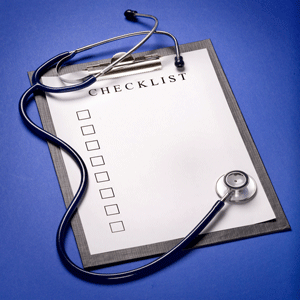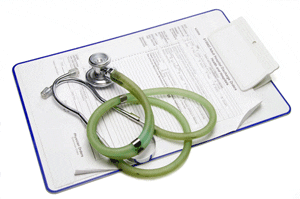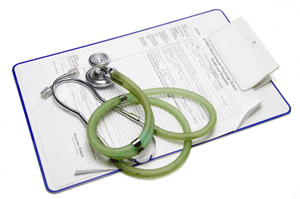Patient Instructions
Instructions

Colonoscopy Instructions
Dr. Whelan does colonoscopies on Wednesday at Westside GI located at 619 West 54th Street in New York City. Currently it is required to have a Covid PCR test done 4 days in advance of the procedure. You must also have a responsible adult to escort you home after the procedure.
In order to ensure a good exam you must prepare by taking laxatives to clean out the colon so that he may identify any abnormalities within the colon or the lining of the colon. If the colon is not adequately clean there is a chance that that Dr. Whelan would have to abort the procedure to complete it on a different day with another prep, or worse, that he could miss a potential polyp or cancer. To ensure this, we require a 3 day colon preparation.
Regular Medications:
It is important that you continue to take your usual medications throughout the bowel preparation. If possible aspirin, motrin and other nonnarcotic pain medications should be avoided for five days prior to the procedure.
If a doctor has prescribed aspirin for you please check with that physician to ask if you can safely stop taking it for the procedure. You must also let us know if you are taking any blood thinners such as eliquis, lovenox or coumadin. These types of prescription blood thinners must be stopped for at least 5 days before the procedure, but ONLY if the doctor who has prescribed it agrees that it is safe for you to do so. If it is not safe for you to stop taking blood thinners, then the colonoscopy will have to be postponed until a later date.
If you are a diabetic and are on medication for that, please discuss how to manage it during the prep with your primary care doctor or your endocrinologist.
On Sunday:
You may eat a regular breakfast. After breakfast do not eat any more solid foods. Beginning with lunch you will be eating only clear liquids. This includes anything you can see through, no milk of milk products. Some examples include: coffee or tea with no milk, clear broth, apple juice, gatorade, jello or ice pops. Please do not include anything with red or purple dye.
On Monday:
Continue having only clear liquids. At 3 pm take 2 bisacodyl (5mg each) pills. Between 4-6 pm take 3 tablespoons of Milk of Magnesia. Both of these products are readily available over the counter; no prescription is required.
On Tuesday:
Continue with clear liquids. You will have received a prescription for a commercial bowel preparation. Mix the prep with water according to the instructions and shake it well. You may refrigerate according to personal preference.
At 9 am take 2 bisacodyl pills.
Between 11 and 12 you can start drinking the bowel prep. Drink one glass every 15 minutes or so until you finish half the container.
Between 1-3 you should drink the second half of the container.
It is important to drink additional clear liquids during the prep so that you do not become dehydrated. When you finish drinking the bowel prep you may still have clear soups, juice, jello , etc.
On Wednesday:
You may have clear liquids up until 5 hours before your procedure. Do not eat any solid foods.
If you have any questions regarding the preparation please contact our office and ask to speak to the Nurse Practitioner.
Procedure Date_________________
Time__________________________
Sigmoidoscopy Instructions
A sigmoidoscopy is a shorter version of the colonoscopy. It looks at the lower part of the colon and does not require as much bowel preparation. It also is often done without anesthesia.
Depending on the reason we are doing the procedure, it may either be done in our office or at West Side GI located at 619 West 54th Street in New York City.
Please be sure to confirm with our office which location your procedure is scheduled at.
If you are on a blood thinner you will need to stop them 5 days prior to the procedure. Please ask your PCP if it is safe for you to do so. If you cannot stop the blood thinners, we will likely have to postpone the procedure.
Preparation:
The day before the sigmoidoscopy you may eat a regular diet.
The night before you will take 3 tablespoons of Milk of Magnesia.
The morning of the procedure you will use a fleets enema to clean out your rectum. If you are still passing some stool after using the enema, then refill the bottle with plain tap water and use that to do an additional clean out.
You should have no solid food the morning of the procedure, but you may drink clear liquids until 5 hours before the procedure.
Ostomy Patients:
If you have an ileostomy you should not take the Milk of Magnesia.
If you have a colostomy, you will need to take the Milk of Magnesia.
If you are not sure of the type of ostomy you have, please ask the Doctor or Nurse Practitioner.

Two Day Bowel Preparation
It is very important that the colon and rectum be clean before surgery.
We utilize a combination of Miralax (polyethylene glycol powder ) and Duccolax ( bisacodyl) 5mg pills. These are over the counter products. You will need to purchase one 238 gm bottle of the Miralax and one small box of the Duccolax which contains at least 4 tablets and one 10 ounce bottle of magnesium citrate. You will also need to purchase a 64 ounce bottle of gatorade, no red or purple.
There will be two prescription antibiotics to take the day before surgery as well.
You will also be given chlorhexidine soap to wash with before the surgery.
Please carefully read and perform the bowel preparation as outlined below. If you have any questions after reading the following materials please call (212)434-4860.
2 DAYS BEFORE SURGERY
Stop eating all solid foods. Clear liquids include fluids that you can see through: fruit juices, tea, coffee (without milk), water, All types of sodas, all jello except (RED) broth and popsicles… No Milk or Milk products like ice cream or cheese, no orange juice..
It is important that you continue taking your prescription medicines during this time.
If you take insulin on a daily basis please check with your regular practitioner about how to manage your diabetes while the bowel preparation is in progress.
At 4pm you should drink a bottle of Magnesium citrate. This is an over the counter laxative which is the first part of your bowel preparation.
THE DAY BEFORE SURGERY
Continue with only a clear liquid diet. No solid foods, no milk or milk product.
At 10 am take 2 duccolax (bisacodyl ) pills.
At 1 pm mix the entire bottle of Miralax or the generic equivalant, with 64 ounces of gatorade and begin drinking the preparation. Drink one 8 ounce glass every 15 minutes until finished.
Be sure to drink additional clear liquids after you finish the prep.
At 4pm take 2 duccolax (bisacodyl) pills.
The prep will result in several liquid bowel movements. Be sure to continue to drink clear liquids through out the day so you do not become dehydrated.
You will have been prescribed two antibiotics which should be taken as follows:
Neomycin sulfate 500mg: take 2 pills at 3pm, 7pm and 11pm
Metronidazole 500mg: take 2 pills at 3pm, 7 pm and 11pm.
The evening before surgery you need to wash with the chlorhexidine.
MORNING OF SURGERY
Wash with chlorhexidine soap the morning of surgery.
You may continue to drink clear liquids up to 3 hours before the surgery. ( For example, if your surgery is scheduled for 10 am, you may drink clear liquids until 7 am)Please drink one 16-24 ounce bottle of gatorade or powerade during this time. If you are a diabetic, use the sugar free solution.
You should STOP eating all solid foods the day before your surgery. You may have only clear liquids including fruit juices tea, coffee (without milk), water, soda, jello, broth, popsicles. No milk or milk products.

It is important that you continue taking your prescription medicines during this time. If you take insulin on a daily basis please check with your regular practitioner about how to manage your diabetes while the bowel preparation is in progress.
The bowel preparation is not a prescription. You will need to buy one 238 gram bottle of miralax. At the same time you should also one 64 ounce bottle of gatorade and one 16- 24 ounce bottle of gatorade or powerade.
At 1pm mix the entire bottle of miralax with the 64 ounce bottle of gatorade. Drink one 8 ounce glass every 15 minutes until finished. This will produce frequent watery bowel movements.
Be sure to drink additional clear liquids during and after the prep to avoid dehydration.
Two prescription antibiotics will have been ordered for you. Please take them as follows:
Neomycin sulfate 500mg: take 2 pills at 3 pm, 2 pills at 7pm and 2 pills at 11pm.
Metronidazole 500mg: take 2 pills at 3pm, 2 pills at 7pm and 2 pills at 11pm.
In the evening and in the morning before surgery use the Chlorhexidine soap to wash with.
The day of surgery you should drink a 16-24 ounce bottle of gatorade or powerade 3-4 hours before your surgery. If you are a diabetic, be sure to use the sugarless product. You may have clear liquids up to 3-4 hours before the surgery.


Please read these instructions very carefully. Follow the instructions as closely as possible. If you have any questions, please do not hesitate to call the office at (212) 434-4860.
Wound Care
Starting the morning after your surgery, you should begin taking “Sitz Baths”. A sitz bath is simply soaking your bottom in warm water. You may use a regular bath tub or a commercial product that fits in the bowel of your toilet. Sitz baths increase the blood circulation in your anal area, which will help the healing process and make you feel more comfortable. This should be done at least three times a day and after each bowl movement.
Each sitz bath should last about 15 minutes.
After the bath, carefully pat your bottom dry do not rub. It will also help to place a gauze pad over (not inside) your anus after these baths, or you may also use a sanitary napkin to protect your underwear and absorb discharge. Using a hair dryer set on low to blow dry can also be effective in making you more comfortable.
It is normal to see a little bleeding or discharge after the surgery. If you are passing a significant amount of bright red blood, that is not normal. If you are not sure, call the office.
Pain management
Toradol (ketorolac) is a very potent nonsteroidal anti inflammatory medication You will take one pill (10 mg each) every 6 hours for the first 3 days. You should take it on a regular basis as it will help prevent the pain. DO NOT take ibuprofen or aspirin or other NSAID with it, as it can cause bleeding or irritate your stomach. Likewise, if you have a history of a gastric ulcer or kidney disease please make sure you let us know.
The second prescription is for a narcotic pain medication, Oxycontin 5mg. You may take 1-2 tablets every 4-6 hours only if you have significant pain. DO NOT TAKE THE NARCOTIC EVERY 4 HOURS AUTOMATICALLY. Take it only if the Toradol (ketolorac) does not help the pain. Narcotic pain medication can cause constipation and ultimately cause more pain.
Flagyl ( metronidazole) is an antibiotic that has been shown to have anti inflammatory properties in hemorrhoidectomy patients. (If you are not having a hemorrhoidectomy you will likely NOT receive this prescription). You will take one pill every 8 hours for 5 days.
Day 3 Forward:
When you finish the toradol medication you may start taking acetaminophen (tylenol) 1000mg every 6 hours. This can be supplemented by taking ibuprofen (advil/motrin) 600mg every 6 hours. Take the ibuprofen 3 hours after taking the acetaminophen. If the acetaminophen alone controls the pain, then you do not need to take the ibuprofen.
Bowel Movements
It is very important that you do not get constipated after surgery. If you have a full rectum, you will have more pain.
The following laxatives are to be taken on a DAILY basis and do not require a prescription:
Colace (ducosate sodium) 100 mg capsules, take 2 pills (200 mg) twice a day.
Mineral oil, 1 tables spoon nightly before bed.
Fiber such as metamucil, citrucel or benefiber, take one tablespoon 2 or 3 times a day in a full 8 oz glass of water.
If you do not have a bowel movement (bm) by the 3rd day after your surgery you should stop taking the narcotic and do the following:
Take 2 tablespoons of milk of magnesia first thing in the morning. If you still do not have bm by the evening, repeat the dose. If you still have not had a bm by the next day you need to take two duccolax (bisacodyl 5mg) pills.
Please call the office at any time if you are having problems and speak to one of the providers. If you develop any fever > 101, difficulty urinating or persistent bleeding, you must notify us immediately.
The first post op appointment is generally 7-10 days after surgery and should be scheduled with the nurse practitioner.
Once the surgery is over, you play a large role in your own recovery. Complications from immobility after surgery can include pneumonia, blood clots, and prolonged ileus (intestinal immobility). You will be expected to take an active role in your care by doing the following:
Coughing and Deep Breathing Exercises
Pain from the incision along with lying in bed will prevent you from taking deep breaths and expanding your lungs completely. By coughing and deep breathing, you can help to prevent post operative pulmonary complications such as post operative pneumonia
You will be given a tool called an incentive spirometer which will help you do this. The spirometer has a mouth piece which you place in your mouth and then inhale as if you were sucking on a straw. This should be done in one long deep breath and it should be repeated 10 times every hour.
Coughing is important to rid your lungs of any fluid accumulation. The correct way to do it is to take a deep breath and cough on the exhale. Holding a pillow or your hands over your incision for support will help decrease the discomfort while coughing.
Ambulation
Walking after surgery is very important for your recovery. It helps prevent blood clots and also helps promote normal bowel function. Walking will help to stimulate peristalsis and also help relieve gas pain. You can expect to get out of bed, at latest, the day after surgery. Depending on the type of surgery and time of day you are scheduled, you may be out of bed the same day.
Pain Medication
You can expect to have some discomfort at the surgical site. We will help you get through this by prescribing anti inflammatory medications as well as narcotic pain relievers. We encourage very judicious use of the narcotics, as these can slow down the recovery of bowel function and prolong your general recovery.
Diet
You will not be allowed to eat anything until we are certain that your intestinal function has returned. If you pass stool or gas, it is important that you let us know. We will also listen to your abdomen for bowel sounds to be able to assess this. When we have determined that it is ok for you to take anything orally, you will be started on clear liquids. This means small sips; no more than 2 ounces at a time. It is best to eat and drink while sitting up and to walk afterward. If you eat or drink too much before your body is ready you may wind up vomiting and this will set your recovery period back. You will gradually return to a low residue diet. Chicken, fish, pasta and rice are all low residue foods. Low residue is important because many patients experience looser ,more frequent stools to start with. It is best to start with 6 small meals a day rather than 3 large meals. As your bowel movements return to normal and you start to feel better you will gradually incorporate cooked fruits and vegetables once you get home and then raw fruits much later in your recovery.
Care after the incision and drainage
A pressure dressing has been applied to control any bleeding immediately after your procedure. This can be removed 8 hours after the procedure. However, if you need to have a bowel movement before that you may remove the dressing at that time.
After the dressing has been removed it is important to sit in a sitz bath with warm water for 5-10 minutes. This should be done at least three times a day and after each bowel movement for 7-10 days. You can either use your bathtub or a portable sitz bath which can be bought at any pharmacy.
After each bath gently pat the area dry and use a piece of gauze or sanitary pad to absorb moisture. A small amount of drainage is to be expected.
It is important to keep your bowel movement soft and easy to pass. You should take Colace 100mg 2 pills twice a day, and a soluble fiber such as Metamucil, or Citrucel one tablespoon twice a day.
Take pain medication as directed. Do not drive or operate machinery if taking a prescription pain medication.
Call our office for any of the following
Persistent rectal bleeding, Increased pain or difficulty urinating or a temperature over 100 F.
Dietary and Exercise Recommendations Regarding Colon and Rectal Cancer

Researchers and physicians have long suspected a link between diet and lifestyle and the development of Colon and Rectal Cancer (CRC). For example, dietary fiber has been thought to be protective whereas red meat is thought to promote cancer development. Despite some suggestive evidence, it has proven very difficult to obtain the data needed to firmly verify these suspicions.* The World Cancer Research Fund/ American Institute for Cancer Research Continuous Update Project (WCRF/AICR CUP) continually tracks the published evidence regarding a number of different types of cancer. In recent years they have released a series of recommendations and guidelines for each cancer type based on the available data. When their experts believe there is sufficient evidence regarding a number of dietary items or lifestyle behaviors they release an updated report which incorporates these changes. This past spring the WCRF/AICR CUP updated their findings and guidelines for CRC. Their recommendations, which follow, are based on a review of 1,012 published studies.